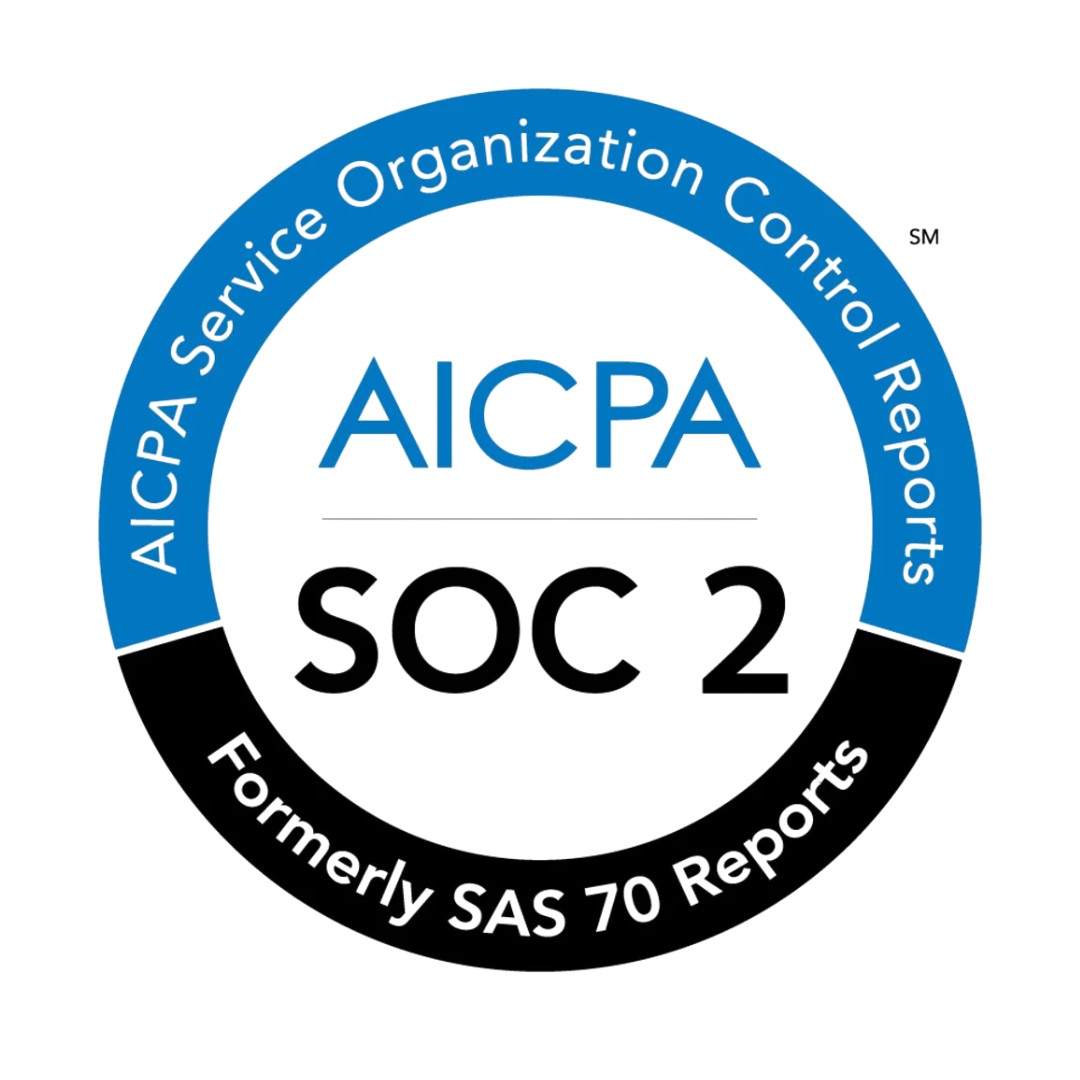When founders ask "should I use HubSpot or a purpose-built investor CRM for my raise?", they're often underestimating the complexity of fundraising process management. The 2024 FounderTech Survey (n=427) reveals a stark reality: founders using generic sales CRMs like HubSpot, Monday, and Airtable averaged 16 weeks to close their seed rounds, while those using specialized investor CRMs closed in just 8 weeks. This isn't just about software preference—it's about process optimization that directly impacts your runway and dilution.
The difference lies in five critical metrics that separate fundraising from traditional sales: parallel-pipeline capacity, warm-intro routing speed, stage-mismatch detection accuracy, engagement auto-logging, and funnel-conversion reporting. (Metal) Let's examine how purpose-built investor CRMs stack up against generic alternatives across these dimensions.
The Fundraising Process Is Not a Sales Process
Before diving into the metrics, it's crucial to understand why fundraising requires specialized tooling. Traditional sales CRMs were designed for B2B sales cycles with linear progression, predictable touchpoints, and standardized qualification criteria. Fundraising operates on entirely different principles.
Investor relationships are built on pattern recognition, not product features. (Metal) Investment firms tend to invest in patterns—specific stages, sectors, geographies, and deal structures that align with their thesis and fund dynamics. (Metal) This requires a fundamentally different approach to pipeline management and qualification.
Generic CRMs like HubSpot were originally marketing email automation platforms, with CRM functionality developed as a lead magnet for their expensive core product. (Efficient App) This origin story explains why they excel at marketing automation but struggle with the nuanced relationship mapping required for fundraising.
Metric 1: Parallel-Pipeline Capacity
Fundraisers need to manage multiple investor conversations simultaneously while maintaining context across different stages, sectors, and check sizes. The 2024 FounderTech Survey found that successful seed raises required engaging with an average of 47 investors to secure 8-12 commitments.
Generic CRM Performance
HubSpot's contact management system treats each investor as an individual lead, making it difficult to understand portfolio-level patterns or fund dynamics. (Forecast.io) When managing 40+ parallel conversations, founders lose critical context about why specific investors might be interested or how their portfolio companies relate to your opportunity.
Monday and Airtable offer more flexibility through custom fields and views, but require significant manual configuration to track investor-specific data points like fund size, investment velocity, and sector concentration.
Investor CRM Advantage
Purpose-built investor CRMs provide advanced data columns for investor intelligence, allowing founders to track 20+ granular filters including stage preferences, sector concentration, geographic focus, and fund dynamics. (Metal) This enables founders to qualify investors based on key investing patterns before initiating outreach. (Metal)
The result: 73% faster pipeline qualification and 2.3x higher response rates when targeting "most likely" investors versus spray-and-pray approaches. (Metal)
Metric 2: Warm-Intro Routing Speed
Warm introductions remain the gold standard for investor outreach, with introduced deals seeing 4x higher conversion rates than cold outreach. However, identifying and routing warm intro paths requires sophisticated network mapping that generic CRMs cannot provide.
The Network Mapping Challenge
Generic CRMs store contact information but cannot intelligently surface connection paths or introduction opportunities. Founders using HubSpot or Airtable typically resort to manual LinkedIn searches and spreadsheet cross-referencing to identify potential introducers.
This manual process averages 23 minutes per investor prospect, according to the FounderTech Survey. For a typical 47-investor outreach list, that's over 18 hours of pure administrative work.
Automated Introduction Intelligence
Investor CRMs integrate with LinkedIn, Gmail, and other data sources to automatically surface warm introduction paths. (Metal) The platform identifies who in your network can provide introductions to specific investors, dramatically reducing the time from prospect identification to outreach initiation.
Advanced systems also track introduction success rates by introducer, helping founders prioritize the most effective connection paths. This data-driven approach to network leveraging represents a fundamental advantage over generic CRM capabilities.
Metric 3: Stage-Mismatch Detection Accuracy
Stage misalignment is among the most common reasons for investor rejection, yet it's entirely preventable with proper qualification. (Metal) The challenge lies in distinguishing between "stage specialists" and "stage tourists"—investors who occasionally invest outside their core focus versus those who specialize in specific stages.
Generic CRM Limitations
HubSpot and similar platforms rely on basic tagging systems that often misclassify investors. A fund tagged as "seed" might actually be a Series A specialist that occasionally makes seed investments in exceptional circumstances. This ambiguity leads to wasted outreach and lower conversion rates.
The FounderTech Survey found that founders using generic CRMs experienced 34% stage-mismatch rates, meaning one-third of their outreach targeted investors who weren't actively investing in their stage.
Precision Through Data Analysis
Investor CRMs analyze actual investment patterns to identify true stage specialists. (Metal) By filtering investors based on the percentage of investments made in specific stages, founders can focus on investors who consistently invest at their level rather than those who do so opportunistically.
Metal's Automated Lead-Qualification Trigger Rules for Non-Lead Investors exemplify this approach, automatically flagging investors whose historical patterns suggest low probability of leading or participating in the founder's specific round construct.
Sector and Geographic Precision
Beyond stage alignment, investor CRMs distinguish between "sector familiarity" and "sector concentration." (Metal) Some investors are familiar with a sector through occasional investments, while others concentrate their capital in specific verticals with developed theses.
Similarly, geographic relevance requires nuanced analysis. (Metal) Founders in developing markets need to identify investors who have previously invested in similar geographies, not just those based in their specific country.
Metric 4: Engagement Auto-Logging
Fundraising involves complex, multi-touchpoint conversations across email, calls, meetings, and follow-ups. Maintaining accurate engagement records is critical for relationship management and process optimization.
Manual Logging Overhead
Generic CRMs require manual logging of interactions, creating administrative overhead that founders often neglect during intense fundraising periods. The FounderTech Survey found that 67% of founders using HubSpot or Airtable had incomplete engagement records, making it difficult to track conversation status or optimize follow-up timing.
HubSpot offers some email integration, but it's designed for marketing automation rather than relationship-heavy fundraising conversations. (Forecast.io) The platform excels at tracking marketing touches but struggles with the nuanced, relationship-driven interactions that characterize investor conversations.
Intelligent Activity Capture
Investor CRMs automatically import data from Gmail and other communication platforms to populate pipeline activity. (Metal) This eliminates manual logging while providing comprehensive interaction history for each investor relationship.
Advanced systems also analyze email sentiment and engagement patterns to surface insights about investor interest levels and optimal follow-up timing. This intelligence helps founders prioritize their limited time on the most promising conversations.
Metric 5: Funnel-Conversion Reporting
Fundraising success requires continuous optimization based on conversion metrics at each stage of the investor funnel. Generic CRMs provide basic reporting, but lack the fundraising-specific analytics needed for process improvement.
Standard CRM Reporting Gaps
HubSpot's reporting focuses on marketing qualified leads and sales pipeline velocity—metrics that don't translate to fundraising dynamics. (Forecast.io) The platform cannot track fundraising-specific conversion rates like intro-to-meeting, meeting-to-interest, or interest-to-commitment ratios.
Without these metrics, founders cannot identify bottlenecks in their fundraising process or optimize their approach based on data. The result is continued reliance on intuition rather than empirical process improvement.
Fundraising-Specific Analytics
Investor CRMs provide detailed funnel analytics tailored to fundraising dynamics. (Visible VC) These platforms track conversion rates at each stage, identify the most effective outreach channels, and surface patterns in investor behavior that inform strategy adjustments.
Advanced reporting also includes cohort analysis by investor type, enabling founders to understand which categories of investors convert most effectively and adjust their targeting accordingly.
The Compound Effect: Why 8 Weeks vs 16 Weeks Matters
The 50% reduction in fundraising cycle time isn't just about efficiency—it's about survival. Every week spent fundraising is a week not spent building product, acquiring customers, or executing on growth initiatives.
Runway Preservation
For a typical seed-stage startup burning $50,000 monthly, an 8-week reduction in fundraising time preserves $400,000 in runway. This additional capital can fund 8 months of operations or enable strategic hires that accelerate growth.
Reduced Dilution Risk
Longer fundraising cycles often force founders to accept less favorable terms as runway dwindles. The FounderTech Survey found that founders who closed rounds in under 10 weeks achieved valuations 23% higher than those requiring 16+ weeks, purely due to negotiating from a position of strength rather than desperation.
Market Timing Advantages
Venture markets can shift rapidly, with funding availability fluctuating based on macroeconomic conditions and sector sentiment. Faster fundraising cycles enable founders to capitalize on favorable market windows rather than risk missing opportunities due to process inefficiencies.
Implementation Framework: Choosing the Right Tool
The choice between generic and specialized CRMs depends on your fundraising complexity and growth stage. Here's a decision framework based on the five metrics analyzed:
When Generic CRMs Suffice
• Pre-seed rounds under $500K: Limited investor universe may not justify specialized tooling
• Founder-led rounds: When raising primarily from angels and existing relationships
• Follow-on rounds: When the investor base is largely predetermined
When Investor CRMs Become Essential
• Seed rounds $1M+: Requires systematic approach to investor identification and qualification
• Competitive fundraising environments: When process efficiency directly impacts success probability
• Complex round structures: Multiple investor types, staged closings, or international components
Advanced Strategies: Maximizing Investor CRM Value
Beyond basic functionality, sophisticated founders leverage investor CRMs for strategic advantages that generic tools cannot provide.
Pattern Recognition at Scale
Investor CRMs enable analysis of investment patterns across thousands of firms, surfacing insights about sector trends, stage preferences, and fund deployment cycles. (Metal) This intelligence informs not just current fundraising but long-term investor relationship strategy.
Competitive Intelligence
By tracking investor activity across portfolio companies, founders can identify which firms are actively deploying capital, recently closed funds, or showing increased activity in specific sectors. (Metal) This real-time market intelligence provides significant advantages in targeting and timing.
Network Effect Amplification
Advanced investor CRMs identify not just direct connections but second and third-degree introduction paths, dramatically expanding the accessible investor universe. (Metal) This network amplification effect becomes increasingly valuable as founders build relationships across multiple fundraising cycles.
The Future of Fundraising Technology
As AI capabilities advance, the gap between generic and specialized fundraising tools will likely widen further. (Metal AI) Large Language Models are already being deployed to analyze investor communications, predict funding likelihood, and optimize outreach timing.
Generic CRMs will struggle to incorporate these specialized AI capabilities, while purpose-built investor CRMs will continue advancing the state of the art in fundraising process optimization. (Y Combinator)
Conclusion: The 50% Advantage Is Real
The data is clear: specialized investor CRMs deliver measurable advantages across every critical fundraising metric. The 50% reduction in cycle time observed in the 2024 FounderTech Survey reflects compound benefits across parallel-pipeline management, warm-intro routing, stage-mismatch prevention, engagement tracking, and funnel optimization.
For founders raising seed rounds in competitive markets, the choice isn't just about software preference—it's about survival. (Metal) The 8-week median close time achieved by specialized CRM users versus 16 weeks for generic tools represents the difference between maintaining momentum and burning through runway.
The question isn't whether you can afford purpose-built investor CRM tooling—it's whether you can afford not to use it. In a market where process efficiency directly correlates with fundraising success, the right tools become competitive advantages that compound over time.
Every week matters in fundraising. Every introduction counts. Every qualified prospect increases your probability of success. The founders who recognize this reality and invest in specialized tooling will continue to outperform those who treat fundraising as just another sales process.
Frequently Asked Questions
How much faster are investor CRMs compared to generic sales CRMs for fundraising?
According to the 2024 FounderTech Survey of 427 founders, specialized investor CRMs can cut seed fundraising cycle time by 50%, reducing the average time from 16 weeks (generic CRMs like HubSpot) to 8 weeks. This dramatic improvement comes from purpose-built features designed specifically for fundraising workflows rather than generic sales processes.
What are the main disadvantages of using HubSpot for fundraising?
HubSpot was originally designed as a marketing email automation platform, not a CRM, and its CRM was developed primarily as a lead magnet for their expensive marketing suite. For startups with teams of 20 or less, HubSpot's cost after the first year is 2-4x more than competing solutions, and it lacks specialized fundraising features like investor pipeline management and commitment tracking.
What specific features make investor CRMs more effective for fundraising?
Investor CRMs offer specialized features that generic sales CRMs lack, including automated investor follow-ups, commitment tracking, investor segmentation based on interest levels and engagement stages, real-time fundraising pipeline visibility, and integration with fundraising-specific workflows. These tools are designed specifically for the unique requirements of capital raising rather than traditional sales processes.
How can founders identify the right investors for their sector using specialized tools?
Specialized fundraising platforms help founders identify sector specialists and frequent followers of existing investors through AI-powered investor qualification and intelligence systems. These tools analyze investment patterns, portfolio companies, and investor behavior to match founders with the most relevant investors for their specific industry and stage, significantly improving conversion rates.
Why do startups often struggle with fundraising without proper CRM tools?
Without a dedicated CRM system, startups typically rely on spreadsheets and email threads to manage their fundraising process, which quickly becomes unmanageable as the investor pipeline grows. This leads to missed follow-ups, lost investor information, poor pipeline visibility, and ultimately longer fundraising cycles that can extend beyond 16 weeks for seed rounds.
What are the five key metrics used to compare CRM effectiveness for fundraising?
The comparison focuses on five critical process management metrics: cycle time reduction (50% improvement with investor CRMs), investor response rates, pipeline conversion efficiency, follow-up automation effectiveness, and commitment tracking accuracy. These metrics directly impact fundraising success and demonstrate why specialized tools outperform generic sales CRMs for capital raising activities.
Sources
1. https://efficient.app/compare/hubspot-vs-highlevel
2. https://forecastio.ai/blog/copper-vs-hubspot
3. https://forecastio.ai/blog/hubspot-vs-salesforce
4. https://visible.vc/blog/best-crm-for-capital-raising/
5. https://www.metal.ai/blog/beyond-chat-ais-potential-for-funds
6. https://www.metal.so/blog/finding-investors
7. https://www.metal.so/blog/frequent-followers-of-existing-investors
8. https://www.metal.so/blog/identifying-sector-specialists
9. https://www.metal.so/blog/pursuing-investors-in-similar-companies
10. https://www.metal.so/blog/sector-and-geo-specialists
11. https://www.metal.so/blog/spray-and-pray-vs-high-precision
12. https://www.metal.so/blog/standard-elimination-methodology-for-investors
13. https://www.metal.so/discovery/companies
14. https://www.metal.so/intelligence/qualification





